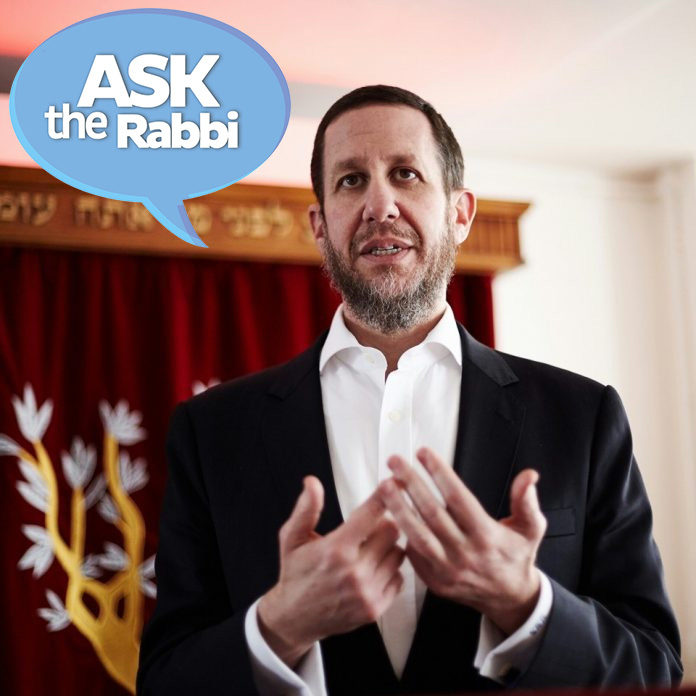
Why Must I Keep A Kippa on my Head?
Dear Rabbi
I’m sure this was asked in the past but a scroll through your columns I couldn’t find it so I hope you’ll take the time to answer me. Why the kippah? If it is to remind me that G-d is above me, why isn’t it enough that I trust myself to know that He is in my mind and heart?
Manny
Dear Manny
So your wife comes home one day (assuming you’re married) and you see she is not wearing her wedding ring. Do you start to worry – maybe just a little? Do you ask her about it? Do you accept the excuse that she loves you in her mind and heart, or would you want her to demonstrate that commitment overtly with the ring on her finger? Let’s be frank: if someone’s going to get up to monkey business, they’ll remove their wedding ring first. It serves as an obvious reminder and ‘deterrent.’ The Yarmulke always helps keep you in check. It’s difficult to get up to no-good with it on your head.
At the same time a wedding ring is a badge of honour where one proudly declares that they belong and are committed to someone. Every time you look at it you invariably think of your loved one. And so too the Yarmulke: it speaks loudly and proudly in declaring who I am. Which is why, incidentally, I think it is a shame that those who may have worn it previously, now take it off for fear of Anti-Semitism. It’s like hiding who you are, in effect handing victory into the hands of the pathetic bully.
What Happened to Moses’ Family?
Dear Rabbi
We had a major discussion at Friday night about the story of the Exodus. Whatever happened to Moses’ sons?
Howard
Dear Howard
I’m delighted to know your Friday night is preoccupied with Jewish discussion and not Arsenal lagging in the league. The question is a very good one, because while we know the whereabouts of Aron’s sons – they succeeded him in the priesthood, we know that it was Joshua, not Moses’ sons who took over the reign of leadership. The last we hear of Moses’ children is in Exodus 4:20 when he loads his wife and ‘sons’ onto a donkey. A further reference is Numbers 11:27, where, according to Oral tradition, Gershom, Moses’ son, is the ‘lad’ who comes running to him. In the Book of Chronicles 23:14 we find Moses’s sons were included among the ‘run-of-the-mill’ Levites, with their typical role to fulfil in the Temple.
There is however also reference to Shuvael (1 Chronicles 24:20) – a grandson of Moses (son of Gershom). There is a story in Judges 17 & 18 which tells of the famous ‘idol of Micha.’ His collaborator was “Jonathan, son of Gershom, son of Menashe.” The Talmud observes the Hebrew characters spelling the name Menashe – equivalent to M-N-Sh-H – appear with the N raised somewhat above the others, as if it didn’t really belong there. The Talmud explains that in order to disassociate Moses from the evil deeds of his idolatrous grandson Jonathan, the name Moses – in Hebrew M-Sh-H – is disguised with the added N, turning it into Menashe. And as the Talmud continues, Jonathan eventually atoned, was appointed royal treasurer by King David, and given the name Shuvael – which means, “He who returned to G-d.”
Why I Don’t Like Chanukah
Dear Rabbi
As a Jew I resent the public display of religion. Putting that monstrosity in Golders Green and the other one in Trafalgar Square is shameful. I try not to go out on Chanukah for that very reason.
Frank
Dear Frank
Every major city in the world today has a menorah perched proudly in a public place, just as many place their personal ones in their windows facing the outside world. The Chanukah lights are the first lesson in religious freedom. These lights stood as the first beacon against the forces of religious bigotry and persecution. There is a tragic irony how in years gone by Jews confronted all sorts of persecution – whether in Nazi Germany or Stalanist Russia. This evoked within them a steadfast committed to their faith. You live in a land of precious liberty where you are able to practise religion freely, where laws are in place to protect your religious rights, where you can walk tall and proud and yet you are ashamed. Well shame on you! Take advantage of the opportunities available to you – opportunities for which many of your ancestors lived and many more died for. I’m going to be frank, Frank – you live in a world of previously unimaginable opportunity. Crawl out from under your rock and take every advantage of it.









